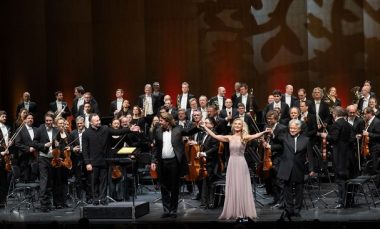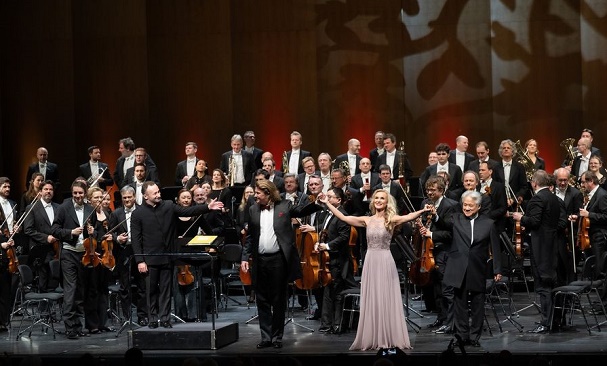 Germany Wagner: Vida Miknevičiūtė (soprano), Klaus Florian Vogt (tenor), Kwangchul Youn (bass), Berlin Philharmonic Orchestra / Kirill Petrenko (conductor). Festspielhaus Baden-Baden, 25.3.2024. (DMD)
Germany Wagner: Vida Miknevičiūtė (soprano), Klaus Florian Vogt (tenor), Kwangchul Youn (bass), Berlin Philharmonic Orchestra / Kirill Petrenko (conductor). Festspielhaus Baden-Baden, 25.3.2024. (DMD)

Wagner – Tannhäuser und der Sängerkrieg auf Wartburg: Overture and the Bacchanal; Die Walküre Act I (concert performance)
For this Richard Wagner Gala at the Easter Festival in Baden-Baden, the Berlin Philharmonic Orchestra repeated the programme of their 2023 New Year’s Eve concert (review click here) with some changes in the singers for Act I of Die Walküre: Klaus Florian Vogt was a last-minute replacement for Brandon Jovanovich (previously Jonas Kaufmann) and Kwangchul Youn instead of Tobias Kehrer who had sung in Berlin. For both pieces it is quite rewarding to reflect on the potential of an orchestra as great as the Berlin Philharmonic. Throughout, and without exception, the orchestra played as one voice. They were faultless and Kirill Petrenko was able to coax harmonies and dynamics from the crystal-clear interplay of the individual sections that are rarely heard; the music thus presented sounded as if one was hearing it for the very first time. Calling this a full range of harmony perhaps captures those relationships better than the concept of control, which conventionally implies hierarchies. There were no hierarchies here – the musicians were at one with their instruments and the conductor was at one with them. And vice versa.

The three soloists of Act I of Die Walküre represented excellence in their own right, albeit at different stages of development. Kwangchul Youn has had an internationally celebrated career for the past 30plus years. On this occasion his voice took time to reach its genuine heights as Hundiing. Eventually, moments of greatness came through, particularly in the lower register of his voice. These moments served as apt reminders of Youn’s past glories in more consistently exceptional role portrayals. Vida Miknevičiūtė has steadily developed her career over a number of years and is now reaching international acclaim. Her voice sounds fresh and secure across registers, although for Sieglinde she is reaching down to the lower notes from a higher soprano rather than presenting mezzo-soprano tones with secure high notes. Those lower notes have potential for further improvement in time, the same is true for her vibrato. It is consistent, tight and fast, increasingly so the louder she sings, something to pay attention to as her voice develops. It has not yet crossed the threshold to her exposed notes sounding shrill but could get there soon. Klaus Florian Vogt has taken care of his voice over the years in such a way that the roles he chooses to sing never sound beyond the reach of his voice, let alone strained or in any kind of vocal danger. Noteworthy for Siegmund is the continuing improvement of the lower range of his voice: here he is able to deploy more sustained strength and volume, whilst the higher range remains pure and ringing.
This concert allowed us to experience music at the highest level of excellence, with an eruption of sounds in the Tannhäuser Overture and Bacchanal that can become almost unbearable and annoying when played by a lesser orchestra, but here from the Berlin Philharmonic it retained the intended and implicit unanimity of musical ideas throughout. The nuances Petrenko achieved in Die Walküre with the unison of singers and orchestra was equally unique.
Daniel Meyer-Dinkgräfe
